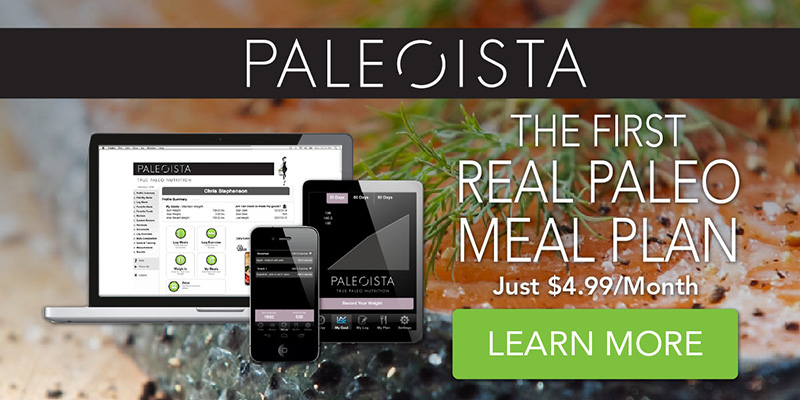Minimize Your IBS Symptoms
Irritable Bowel Syndrome (IBS) causes a variety of symptoms including cramping, abdominal pain, bloating, diarrhea, and constipation. People are typically diagnosed after exhibiting IBS symptoms for at least three months.1 This condition affects 25 – 45 million Americans,2 and until a little over a decade ago, I was included in that group.
Before I found The Paleo Diet, I was at my wit’s end. I was sick and tired of being sick and tired, and it was an absolute horror trying to get to the bottom of what was making me so ill. Some of the diagnoses I received were colitis, “possibly Crohn’s,” and my favorite, “a chronic sensitive stomach.” Eventually, I simply refused to settle a lifelong condition that required medication and avoidance of many foods I knew to be healthy. I was lucky enough to put two and two together and allow my gut to heal itself.
I hate to think of the millions of people that are suffering needlessly, eating foods that are making them sick, avoiding foods that would make them healthy, and taking medication up to the eyeballs. For example, one GI specialist I saw told me to avoid all raw veggies, since they were too hard to digest, and focus on foods that would go down more easily, like white bread, white rice, and Jell-O. Another doctor told me after I tested negative for celiac disease that I should absolutely not cut out gluten. He believed doing so would severely compromise my ability to get enough dietary fiber and B vitamins because breads and cereal grains were the best sources. The third specialist’s advice wasn’t dietary. He simply suggested I take Prozac, because he couldn’t find anything wrong with me and felt what one eats plays little part in their overall health.
Pardon me? How could that possibly be? It was absolutely ridiculous.
In 2005, I finally discovered Paleo, the work of Dr. Loren Cordain, and the work of Dr. S. Boyd Eaton before him. It’s funny how common sense can actually feel so revolutionary! When I began following a true Paleo diet, I felt better in three days. That was just the start of a complete physical and professional transformation for me, which is the very reason I am so passionate about teaching others how Paleo eating can truly heal.
The best way to learn about this lifestyle is to immerse yourself in The Paleo Diet. It’s the one book I recommend to each and every client (in addition to Paleoista, of course) as it outlines in great detail what is happening on a cellular level when gluten is ingested, when we eat legumes, and how, even if one doesn’t feel an immediate reaction, it doesn’t mean there’s no adverse effects.
If you’re someone who just wants the basics, it’s really simple. First, eat a lot of fresh, local vegetables with wild proteins and natural fats. Next, don’t eat items that come in packages, are highly processed, or contain a long list of items you cannot identify as food.
No one had IBS in Paleolithic times. They didn’t have it a couple hundred years ago. In fact, IBS doesn’t even exist in modern day hunter-gatherer societies!
The bottom line is when we eat foods we cannot break down, we cause damage to our gut. The gut becomes inflamed and the body follows. Infection can ensue and cause a complete, all-systems failure over the course of time.
When we adopt a Paleo diet approach, we eschew all the inflammatory, caustic food by-products and introduce a vast array of natural, real, fresh foods that not only taste great but really are food!
Now, do your part and share this with someone you know who’s suffering needlessly from IBS or similar conditions. With nearly 50 million Americans in this category, there’s got to be at least one person you can help!
REFERENCES
[1] https://www.womenshealth.gov/publications/our-publications/fact-sheet/irritable-bowel-syndrome.html
[2] www.aboutibs.org/site/what-is-ibs/facts/






